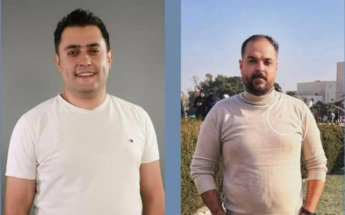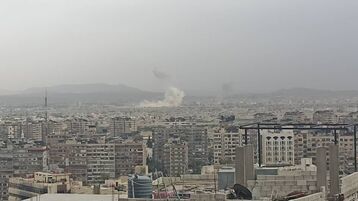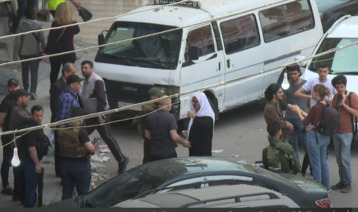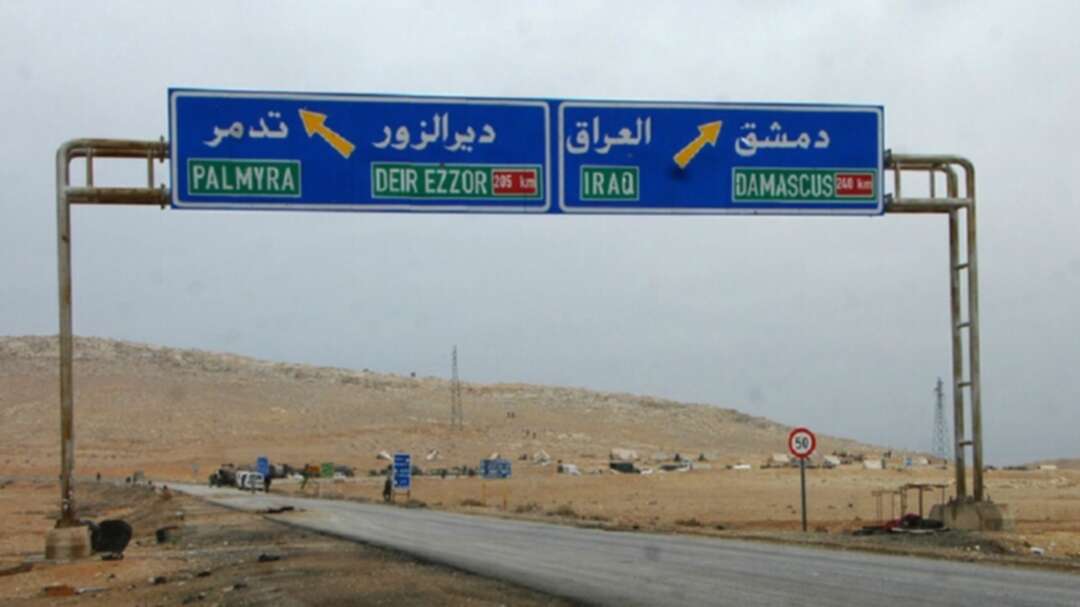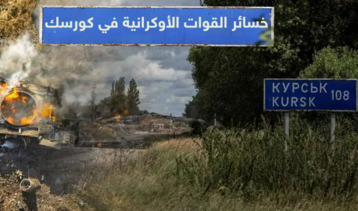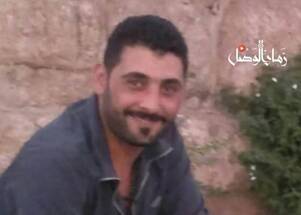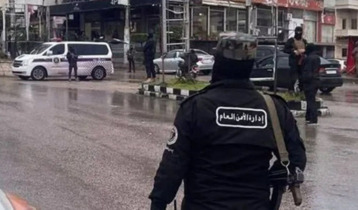-
‘People want to know the truth’: Red Army veteran speaks out on liberation of Auschwitz & distortions of history
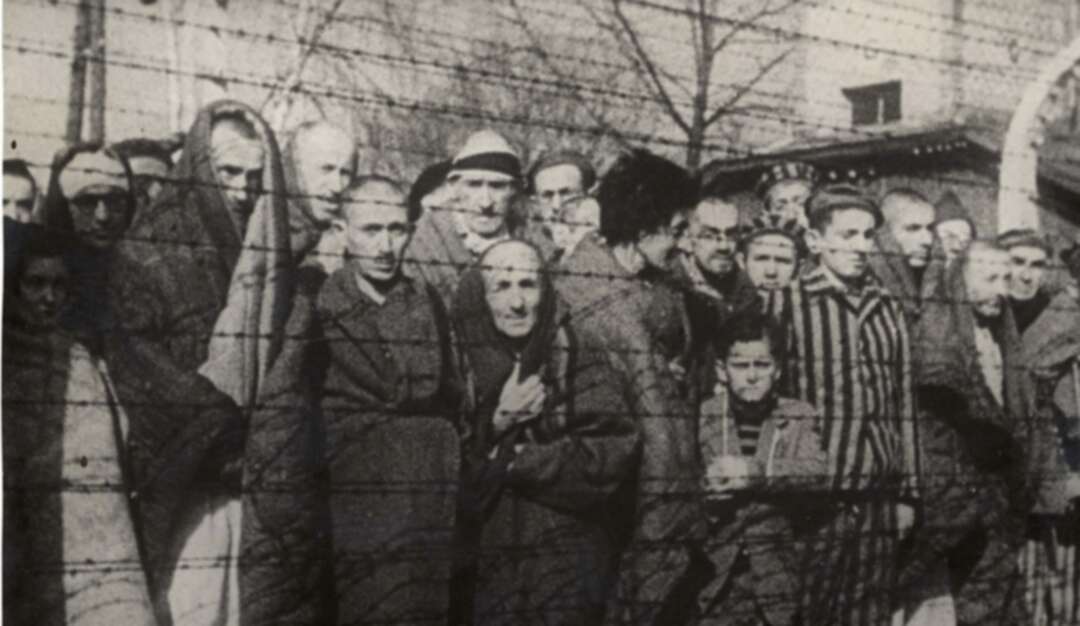
Soviet veteran Ivan Martynushkin remembers the 60th anniversary of the liberation of Auschwitz. It was a “massive celebration” with the Red Army’s role recognized front and center. Fifteen years on, however, something has shifted.
As time goes on, those anniversary events have become “different in tone” and attitudes toward Soviet veterans “drastically changed.” No longer revered in Europe for their role in liberating Poland, Martynushkin says “implicit accusations” began to creep in that the Red Army “were aggressors” who did not truly liberate Poland. In 2015, relations between Moscow and the rest of Europe had become so frosty that Putin was not even formally invited to mark 70 years of Auschwitz liberation.
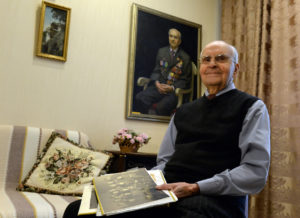 Ivan Martynushkin at his home in Moscow on January 23, 2015
Ivan Martynushkin at his home in Moscow on January 23, 2015Speaking with RT for the 75th anniversary of this event, Martynushkin says he has been surprised to discover over the years that many Poles and other Europeans have been led to believe that it was American soldiers who liberated Auschwitz. Even when he went to take part in the shooting of a documentary in Krakow, some Poles he encountered were “adamant” that it had been the Americans who liberated them.“They could not understand why they had been mistaken for so long. That’s something that has been etched into their memory,” he said, adding that he doesn’t get angry at those who don’t know the full story.
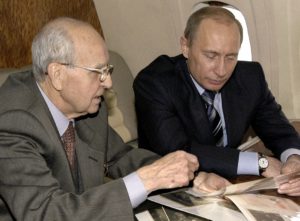 Ivan Martynushkin with Russian President Vladimir Putin in 2005
Ivan Martynushkin with Russian President Vladimir Putin in 2005A long road
Martynushkin was just 20 when he was put on a train and sent to the front lines in 1943, having been trained to operate machine guns and mortars. By late 1944, the Red Army had liberated Russian territories and had moved on to Poland.
“Before crossing the border, our commanders talked to us a lot. They said Poland was our ally, that it was a victim in the war. Our mission is to liberate the fraternal nation of Poland. We were told about their culture,” he recalls.
By January 1945, several Soviet fronts were ready to launch an offensive. It had been set for January 20, but with the allies sustaining heavy casualties, Winston Churchill had asked Stalin to move earlier and the offensive was brought forward to January 12.
“Our division attacked the Nazis near Krakow. After a week of constant fighting, we reached it,” Martynushkin says. Famous for its beautiful architecture, the Red Army was instructed to make sure it remained intact as much as possible.
Martynushkin celebrated his 21st birthday with local Poles who put on a spread “like a family dinner” back home. “I still remember how excited the hostess was seeing us, young boys. She served us without sitting down and thought about our mothers,” he says.
His division soon moved on past Krakow and though he was a commander, Martynushkin couldn’t be sure exactly where his men were headed.
Witnessing hell
One day, having pushed the Germans out of a small village, his division came upon a huge field with barbed wire around it. Some kind of barracks could be seen beyond the wire, leading the men to assume it was a German military site. “It was twilight and we were told to make camp along the village, near the wire, and remain vigilant,” he says.
In the morning, they were given orders to ransack the area around the camp but were shot at from inside. They radioed for artillery backup but were informed the buildings in front of them were a prisoner camp and no artillery fire was allowed.
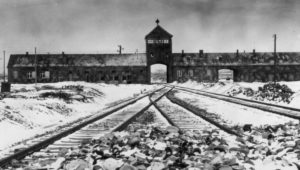 Main guardhouse at Auschwitz death camp
Main guardhouse at Auschwitz death camp“They asked us to refrain from firing back to avoid stray bullets wounding the prisoners,” he explains.
It was only then, when they saw prisoners behind the fences, that it began to dawn on Martynushkin’s division that they had already reached Auschwitz. Martynushkin, it turned out, was one of the first Soviet soldiers to enter the infamous concentration camp. “
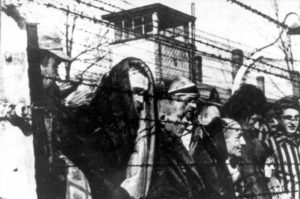 Yad Vashem Archives via Reuters
Yad Vashem Archives via ReutersLater the full horror of the place was revealed as the Red Army began to search the buildings for Soviet prisoners of war. Before they entered the camp there had been a stench of something burning. They had experienced a similar smell before, but this time it was “particularly pungent and heavy.” Martynushkin later learned that the Nazis had blown up the crematorium a week earlier, but that corpses were still lying around the camp. They had been laid out in rows and set on fire like logs.
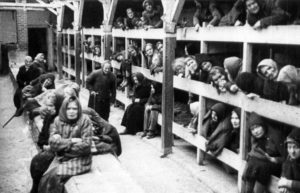 Auschwitz prisoners after liberation by Soviet troops
Auschwitz prisoners after liberation by Soviet troopsThe Soviets settled at the camp for the night. In the morning, the medical battalion began attending to the prisoners and the Soviet kitchen units had caught up. Martynushkin later carried on into what was then Czechoslovakia, where he ended up being wounded and celebrated Victory Day in hospital.
After the war, Martynushkin retired from service, received new training and was given a job at a facility in charge of the atomic bomb project. He still visited Poland often but noticed opinions beginning to shift about the war and memories of the Red Army’s crucial role fading, replaced with stories of American heroism.
Still, despite attempts to “distort history” he says people, even in the Western media, are usually more interested in the “true story of Auschwitz” and not the “fake stories of today.”
source: Reuters
Tags
You May Also Like
Popular Posts
Caricature
BENEFIT Sponsors BuildHer...
- April 23, 2025
BENEFIT, the Kingdom’s innovator and leading company in Fintech and electronic financial transactions service, has sponsored the BuildHer CityHack 2025 Hackathon, a two-day event spearheaded by the College of Engineering and Technology at the Royal University for Women (RUW).
Aimed at secondary school students, the event brought together a distinguished group of academic professionals and technology experts to mentor and inspire young participants.
More than 100 high school students from across the Kingdom of Bahrain took part in the hackathon, which featured an intensive programme of training workshops and hands-on sessions. These activities were tailored to enhance participants’ critical thinking, collaborative problem-solving, and team-building capabilities, while also encouraging the development of practical and sustainable solutions to contemporary challenges using modern technological tools.
BENEFIT’s Chief Executive Mr. Abdulwahed AlJanahi, commented: “Our support for this educational hackathon reflects our long-term strategic vision to nurture the talents of emerging national youth and empower the next generation of accomplished female leaders in technology. By fostering creativity and innovation, we aim to contribute meaningfully to Bahrain’s comprehensive development goals and align with the aspirations outlined in the Kingdom’s Vision 2030—an ambition in which BENEFIT plays a central role.”
Professor Riyadh Yousif Hamzah, President of the Royal University for Women, commented: “This initiative reflects our commitment to advancing women in STEM fields. We're cultivating a generation of creative, solution-driven female leaders who will drive national development. Our partnership with BENEFIT exemplifies the powerful synergy between academia and private sector in supporting educational innovation.”
Hanan Abdulla Hasan, Senior Manager, PR & Communication at BENEFIT, said: “We are honoured to collaborate with RUW in supporting this remarkable technology-focused event. It highlights our commitment to social responsibility, and our ongoing efforts to enhance the digital and innovation capabilities of young Bahraini women and foster their ability to harness technological tools in the service of a smarter, more sustainable future.”
For his part, Dr. Humam ElAgha, Acting Dean of the College of Engineering and Technology at the University, said: “BuildHer CityHack 2025 embodies our hands-on approach to education. By tackling real-world problems through creative thinking and sustainable solutions, we're preparing women to thrive in the knowledge economy – a cornerstone of the University's vision.”
opinion
Report
ads
Newsletter
Subscribe to our mailing list to get the new updates!

